New Ideas in New Lanark, Scotland by Motorhome
Have a look at this and see what you think folks:
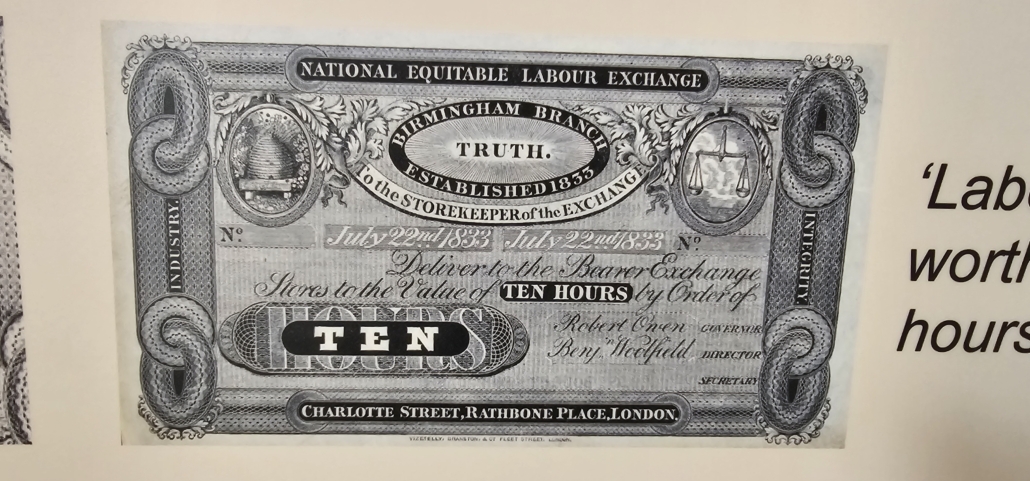
I’d no idea what to make of it when I saw it in New Lanark. It’s a note for 10 hours of labour. Not £10 or $10, but 10 hours. You’d get it for doing ten hours of work. You could then use it in an exchange (a shop effectively) to buy something else which took 10 hours to make, or for ten hours of someone else’s time. So ten hours of cleaning work, for example, were worth the same as ten hours of a doctor or lawyer’s time.
It’s one of Robert Owen’s many ideas on display in New Lanark, one of Scotland’s seven UNESCO World Heritage sites. That’s one of the outstanding things about travel, it exposes me to ideas I might never have come across at home. It makes me think. Our only reasons for coming to New Lanark were (a) the visitor’s centre car park allows overnight stays for £3 and (b) Lanark Moor Parkrun is just a couple of miles away. So we’d definitely not set out to delve into the world of a Utopian Socialist!
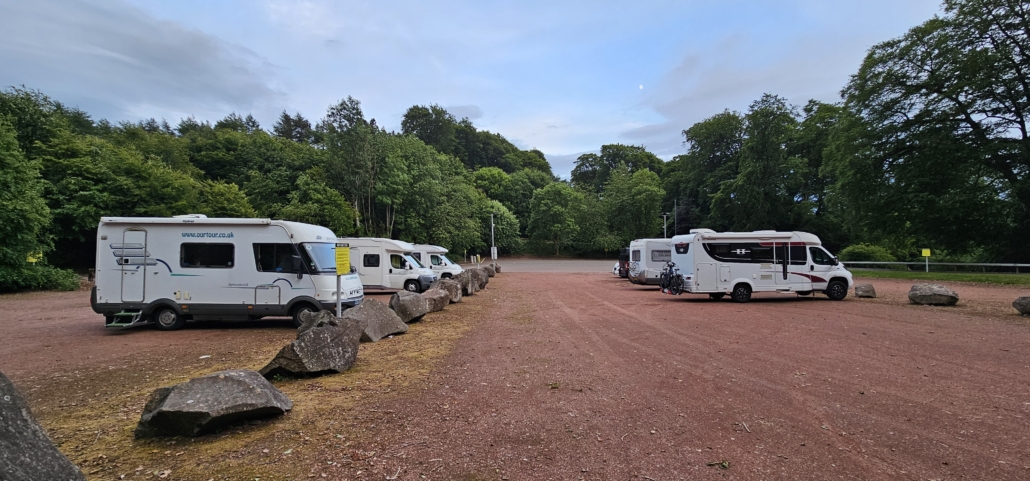
The notes were an attempt at an alternative to money, another way of capturing value. He wanted to do away with passive income. He felt the only way to earn should be by working. No-one should earn interest, dividends, royalties and so on. The notes couldn’t be loaned out, so couldn’t be used to earn interest etc. The idea failed after a couple of years, it proved unworkable. I couldn’t suss how a chair, say, could be worth 10 hours to a more skilled carpenter but maybe 15 to someone less skilled or efficient who took longer to make it? Shouldn’t it be the other way around?
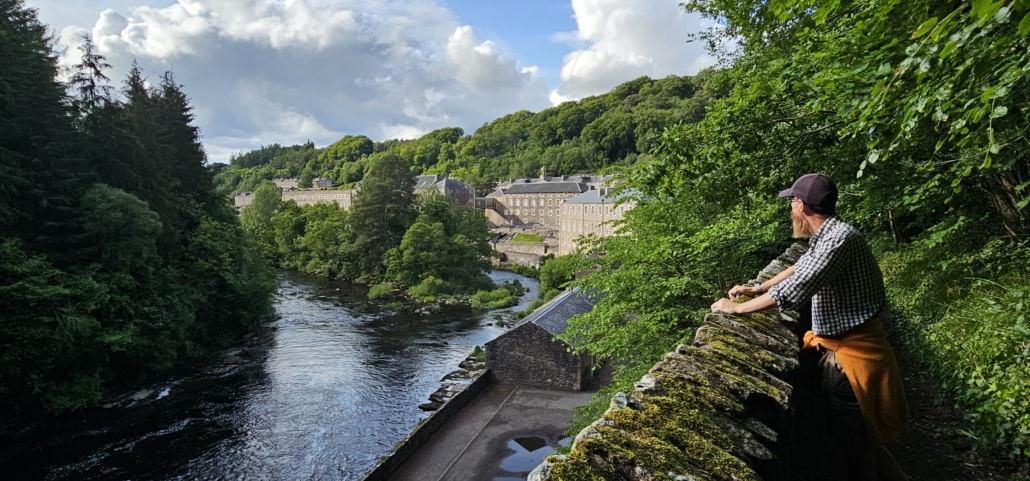
New Lanark was, and still is, a working village set by the River Clyde. This is the only spot the Clyde has waterfalls, which provided enough energy to operate water wheels which in turn ran the cotton spinning machines. Around 2,500 people lived and worked here at the mill’s peak. Following closure and a period of decline and near-ruin of the site, it’s been beautifully restored.
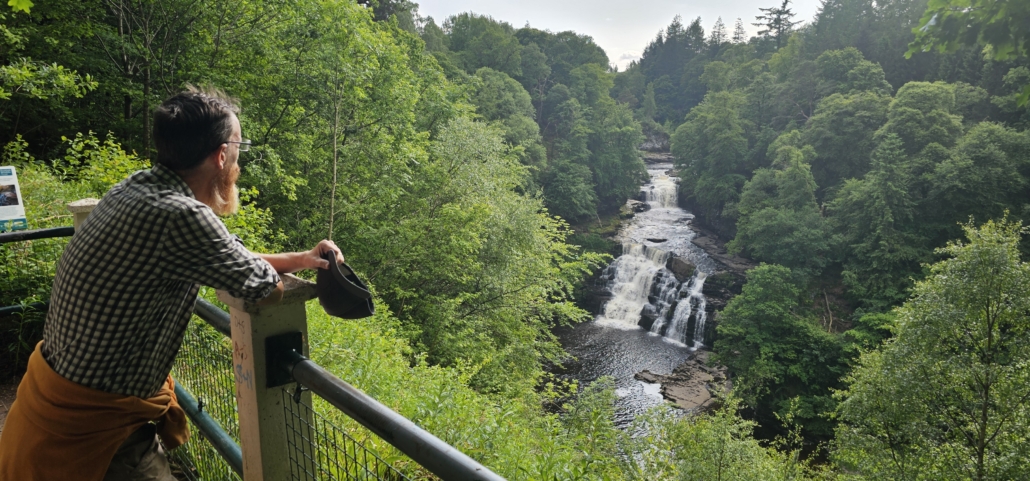
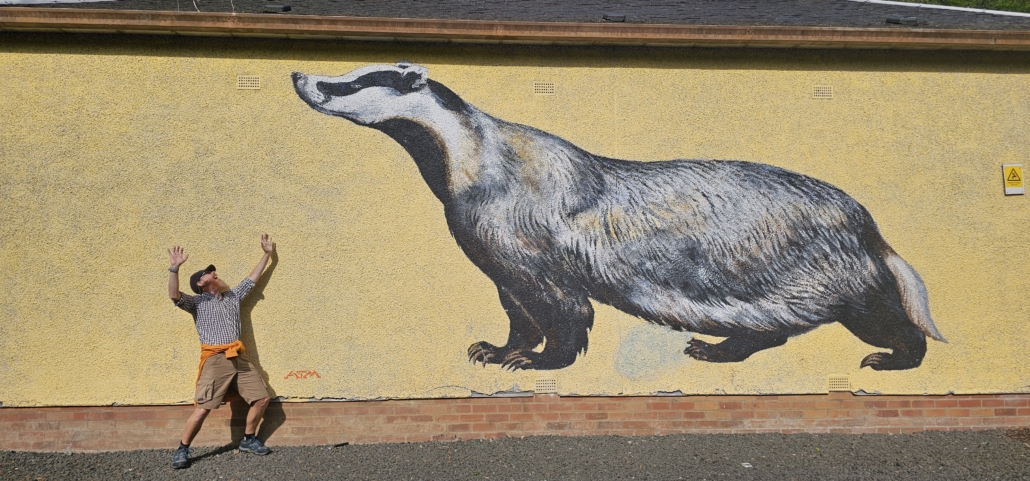
About 130 people live here today, roughly two-thirds rent their home and demand is high. No satellite dishes or TV antennas are allowed, and the pale stone buildings topped with slate look like they were built yesterday. As well as the visitor’s centre there’s a hotel, rental cottages and, up until 2024, a woollen mill.
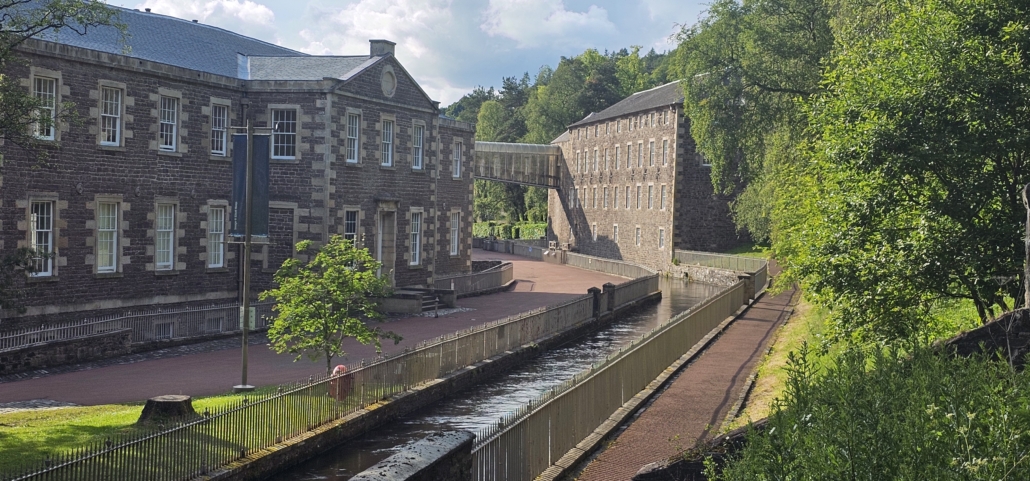
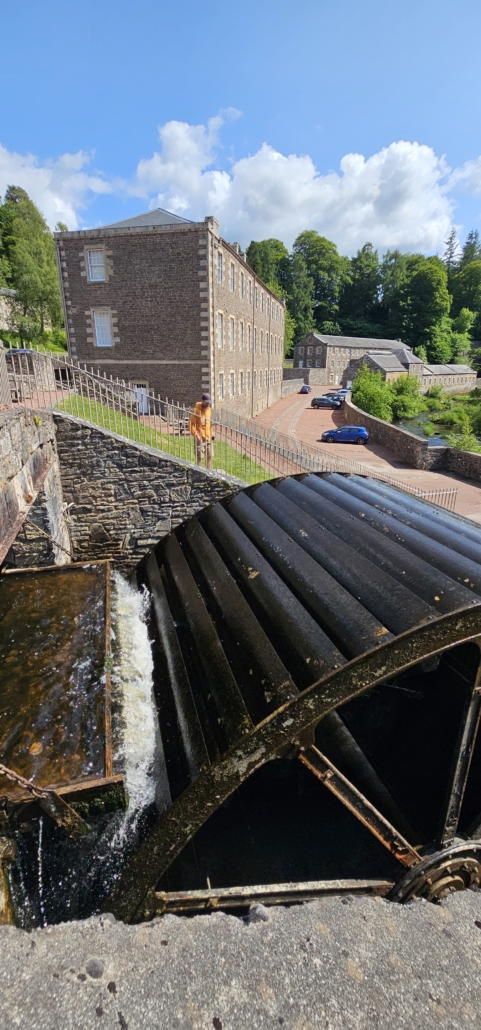
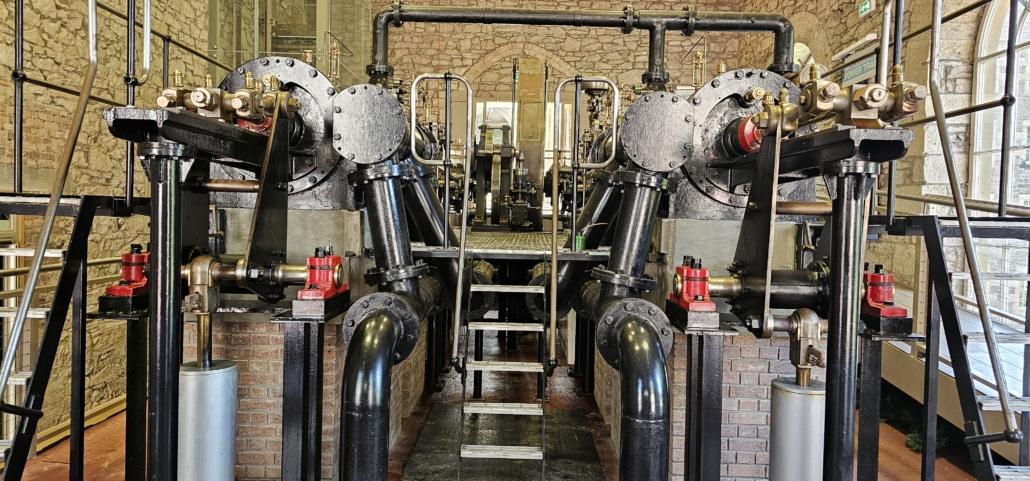
Owen had many other ideas though, many of which are showcased in New Lanark. He bought the cotton mill from his father-in-law in 1799. At the time Britain was about 40 years into the industrial revolution, which wasn’t working out so well for the working class. Slum conditions (10 people families in two small rooms), 70 hour working weeks, child labour, no welfare state, no laws against dangerous working conditions and little education.
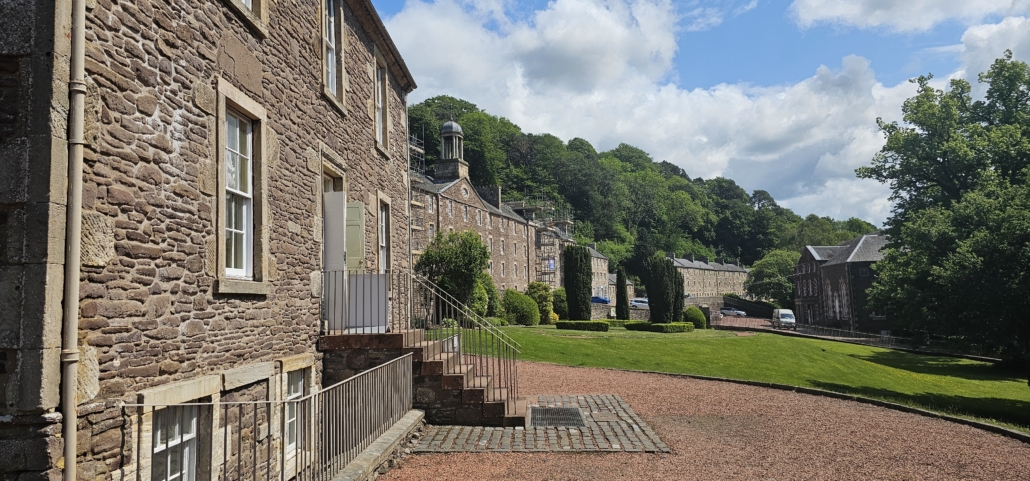
Many wealthy business owners saw workers as morally corrupt, lazy or drunks. Life on the other side of the pond for the slaves picking the cotton was, of course, immeasurably worse, which is mentioned a couple of times among the many exhibits.
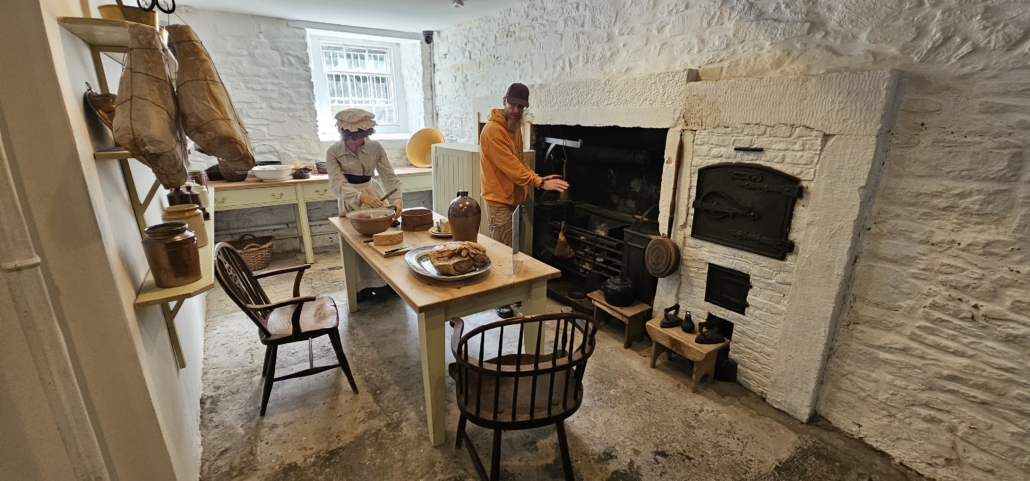
New Lanark was Owen’s test bed for his socialist ideas. He felt his workers were as morally good as anyone, they just needed the right environment. He built a school and didn’t allow children to work until they were ten years old. Laughable by today’s standards but back then five and six year olds doing 60 to 70 hours a week was the norm.
In place of corporal punishment, he introduced a ‘silent monitor’. This was a four-sided piece of wood hung up next to where you worked. Each side was a different colour and represented how ‘well’ you were working and behaving. A very early and low-tech version of China’s Social Credit System in use today. Once the technology was available, he installed a hydro-electric generator and provided free electricity to workers, albeit a single bulb per room for limited hours each day.
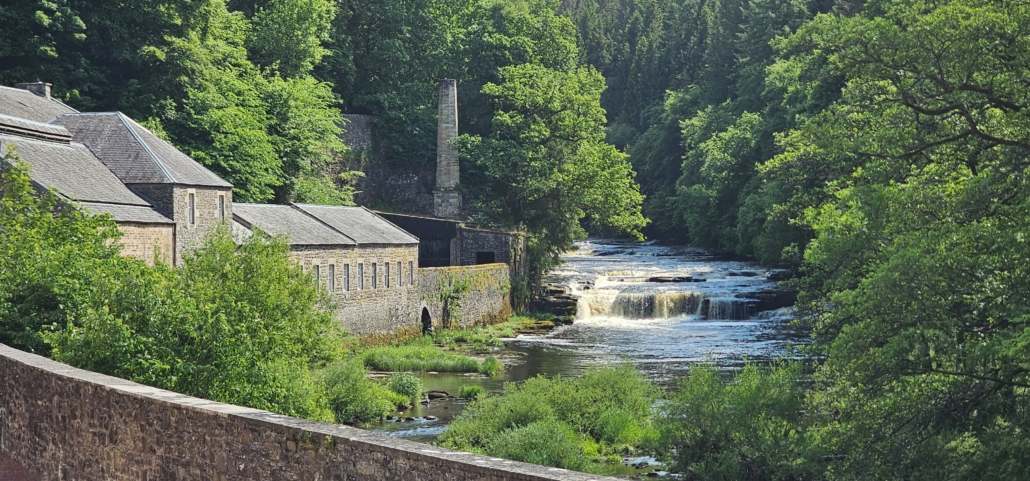
The visitor’s centre costs £15 to enter. You don’t need to pay to look around the outside of the buildings, and we were in two minds whether to bother. I’m glad we did, we had the place to ourselves and had a good couple of hours wandering around. There’s an odd 12-minute ride you go on at one point, over-engineered I think just to get across the point that the workers enjoyed living at the village. Good excuse for a sit down mind you.
A few more photos from in and around the New Lanark Visitor’s Centre:
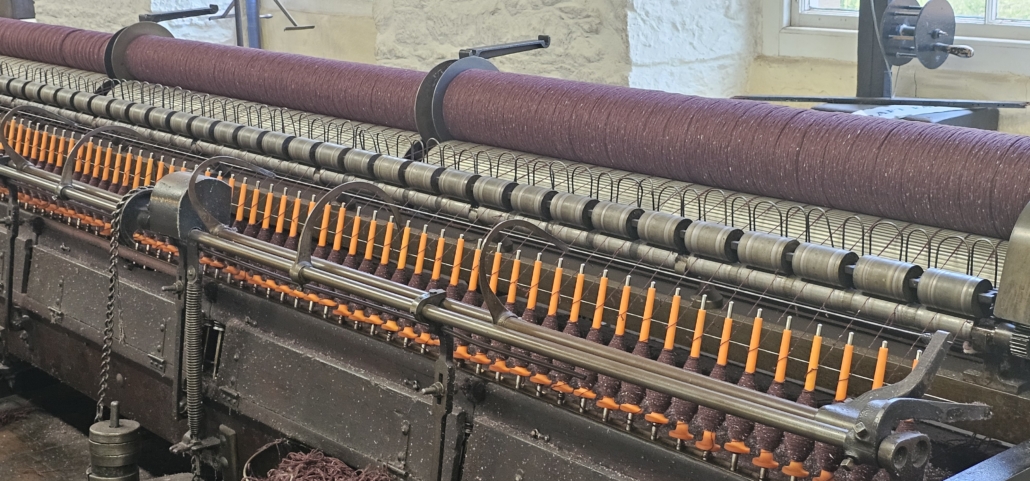
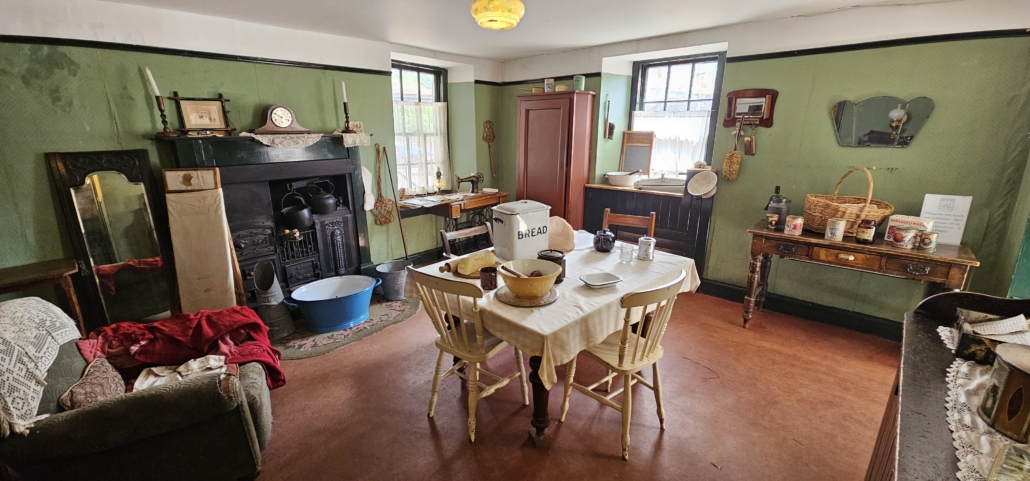
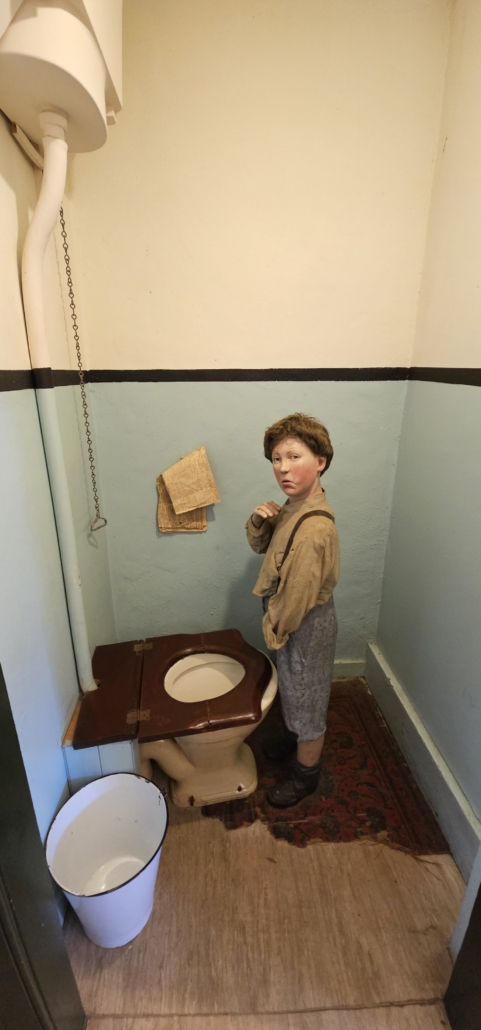
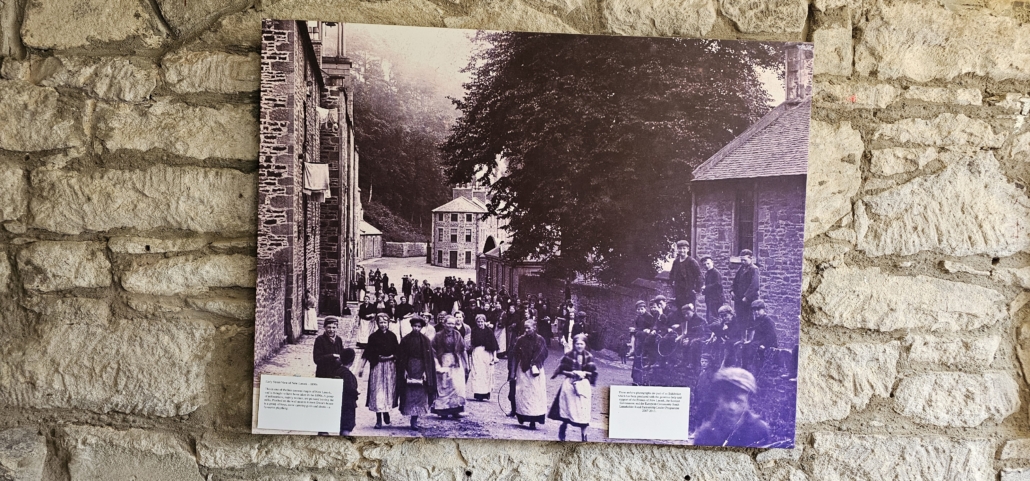
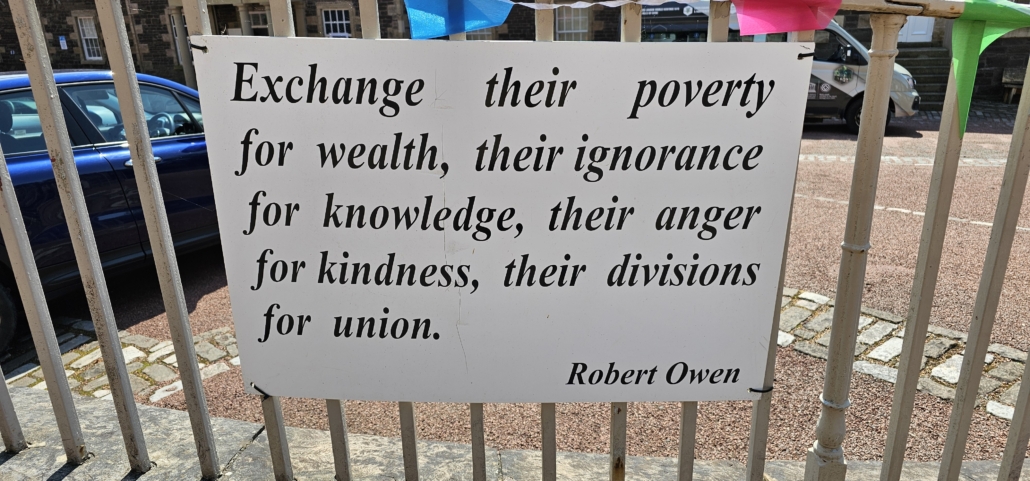
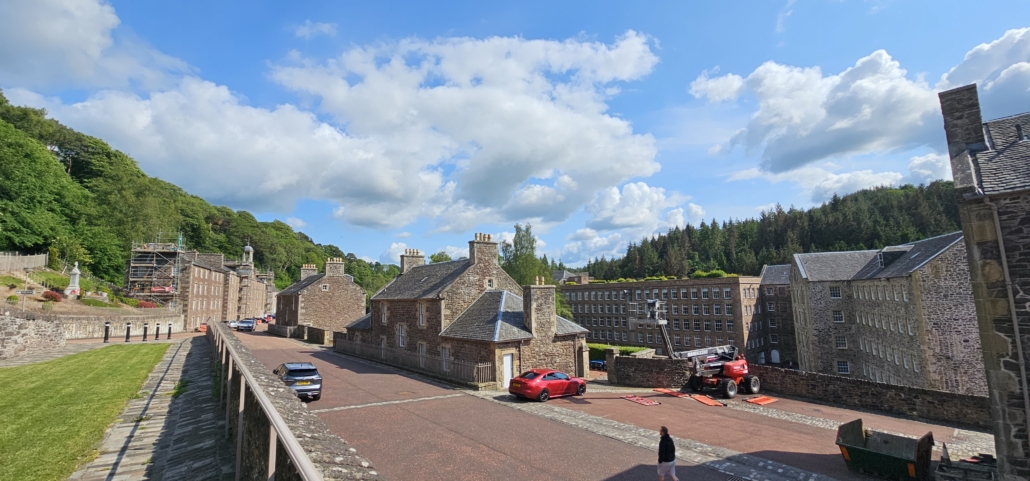
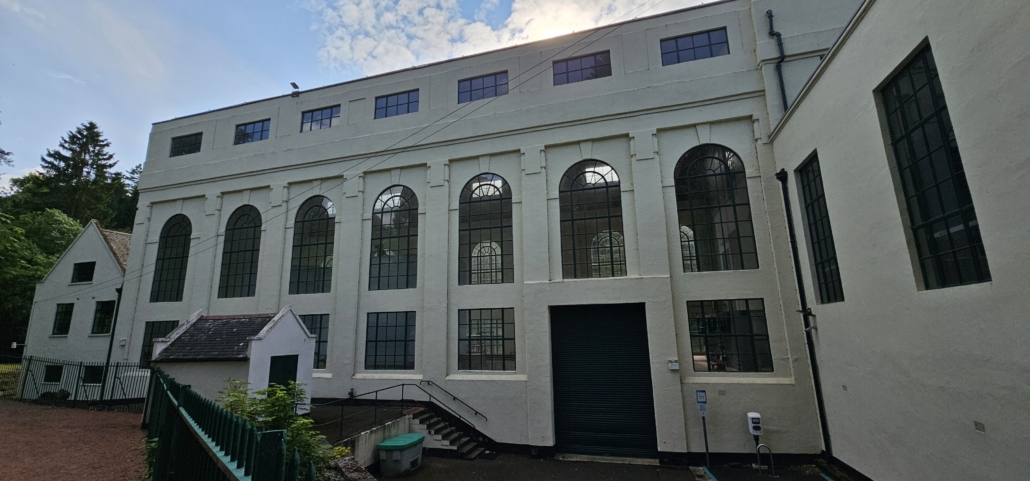
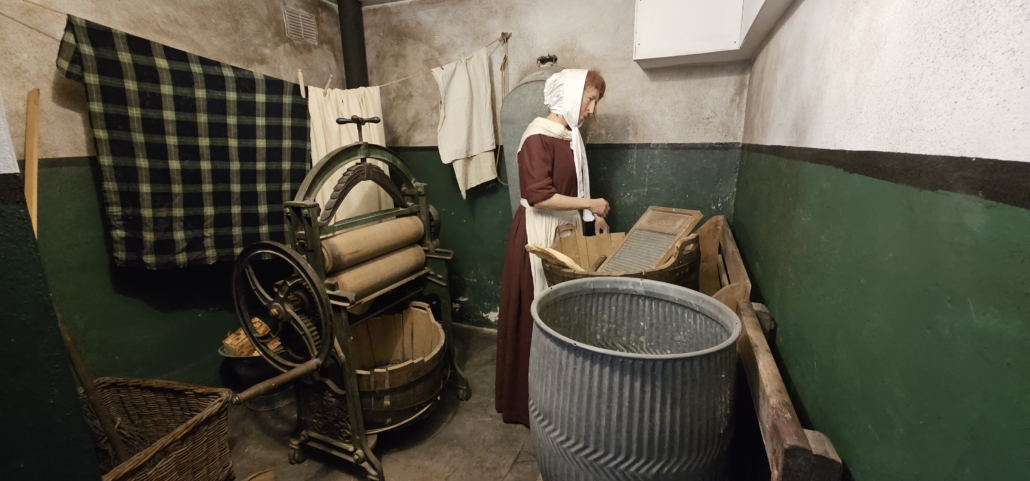
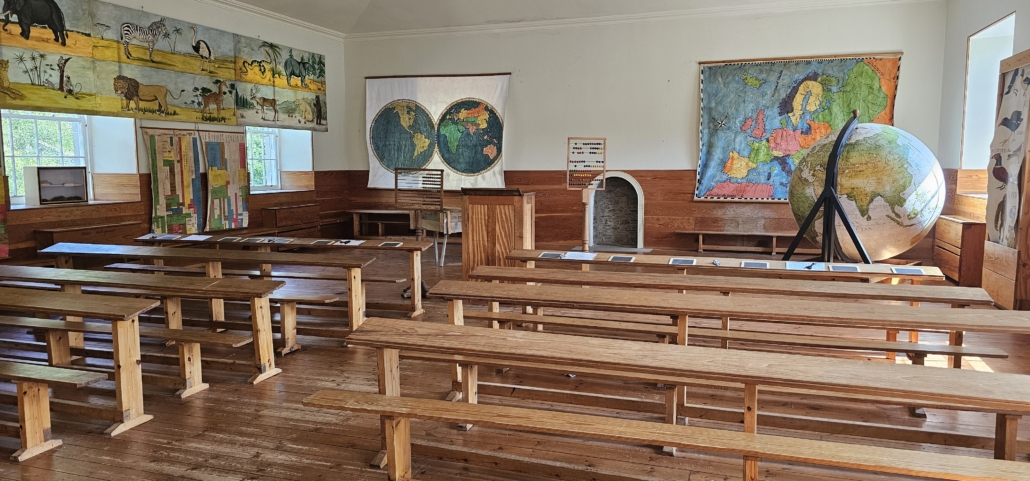
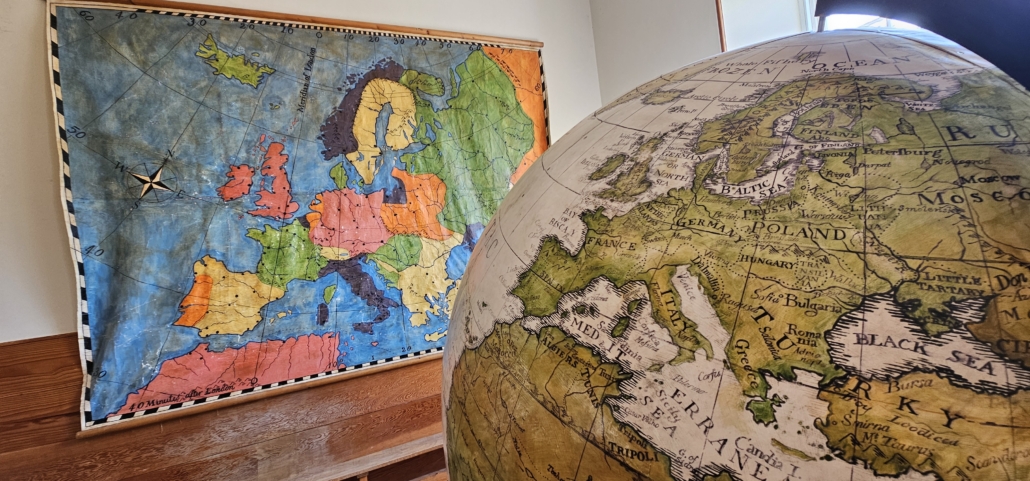
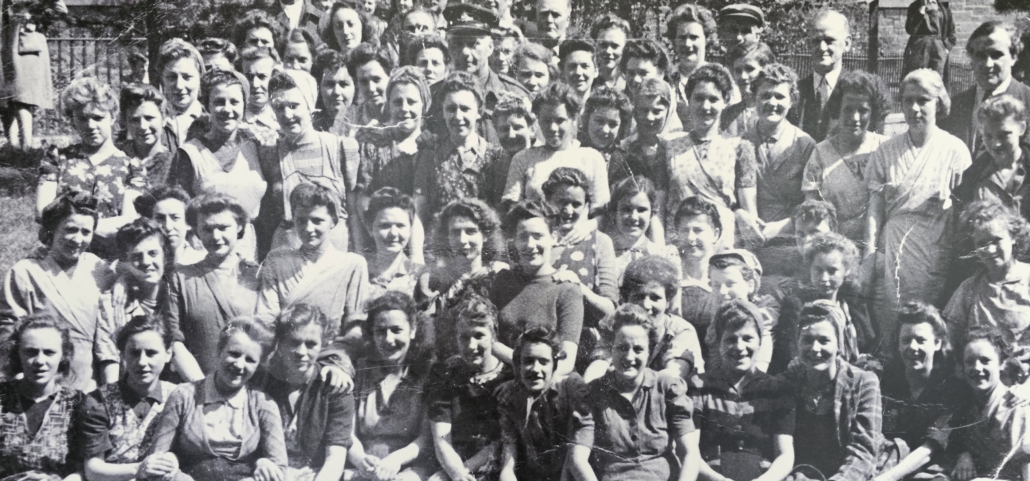
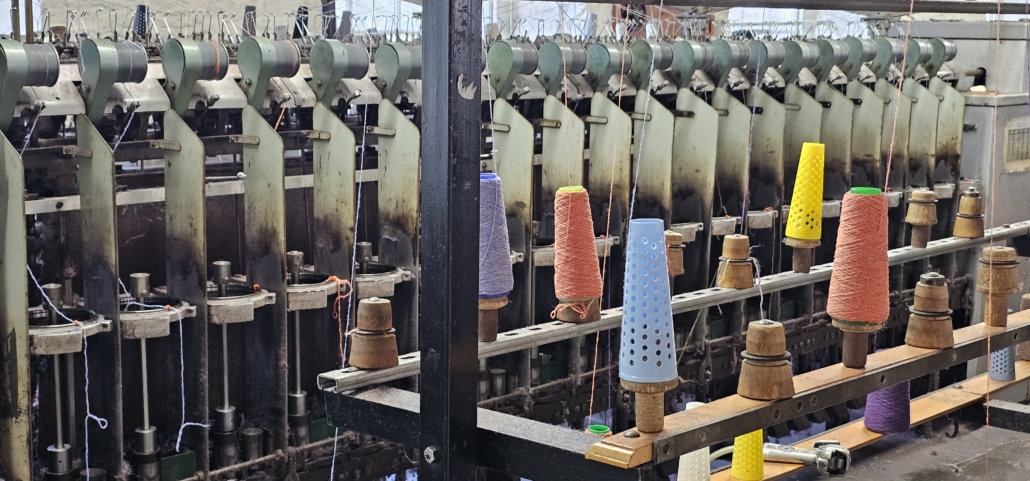
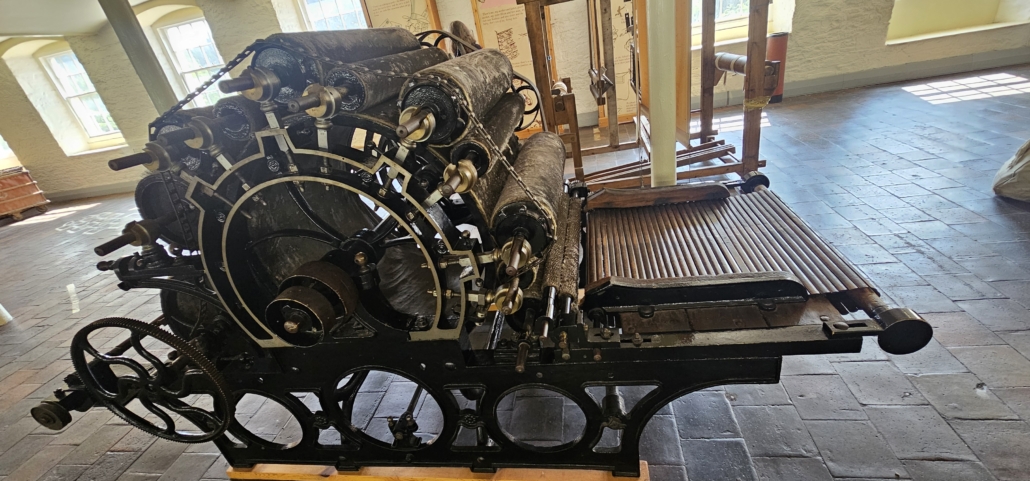
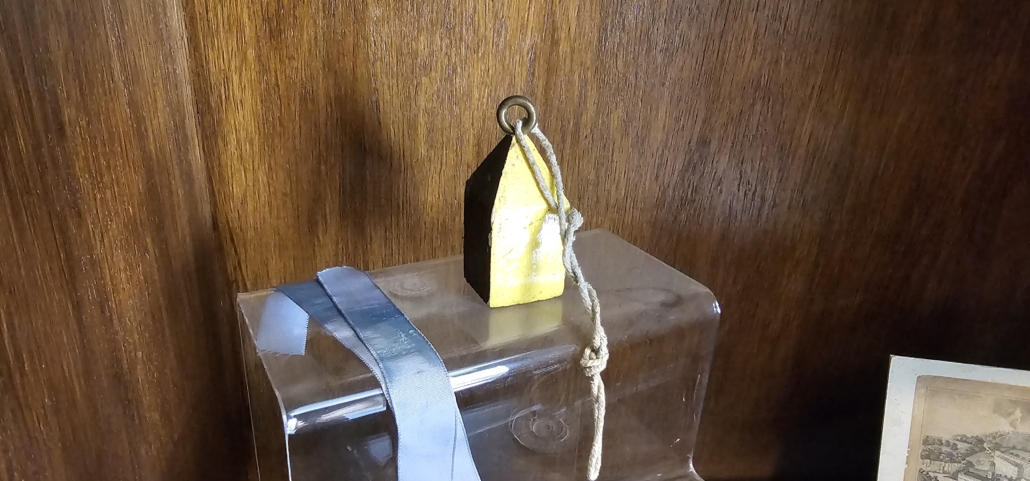
We really enjoyed our stay at New Lanark, learning in the visitor’s centre and walking along the paths in the woods originally built for the workers. Off-site parking is always a risk on Friday or Saturday night, but the area had ANPR cameras to enforce payment. The ‘neds’ who sometimes frequent car parks of a weekend to entertain us with bangin’ choons and wheel spins don’t seem to like paying for the privilege, so the motorhomes were left alone. Great stuff for £3, and the forest walks were well worth leaving a donation too if you enter via the village.
Cheers, Jay

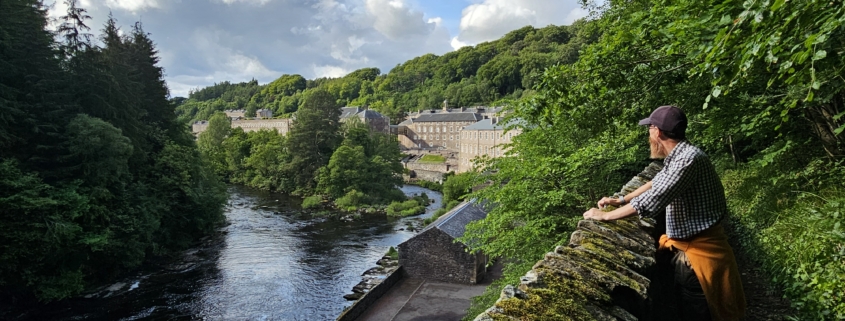
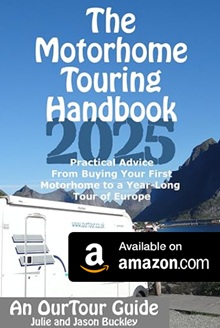

Leave a Reply
Want to join the discussion?Feel free to contribute!